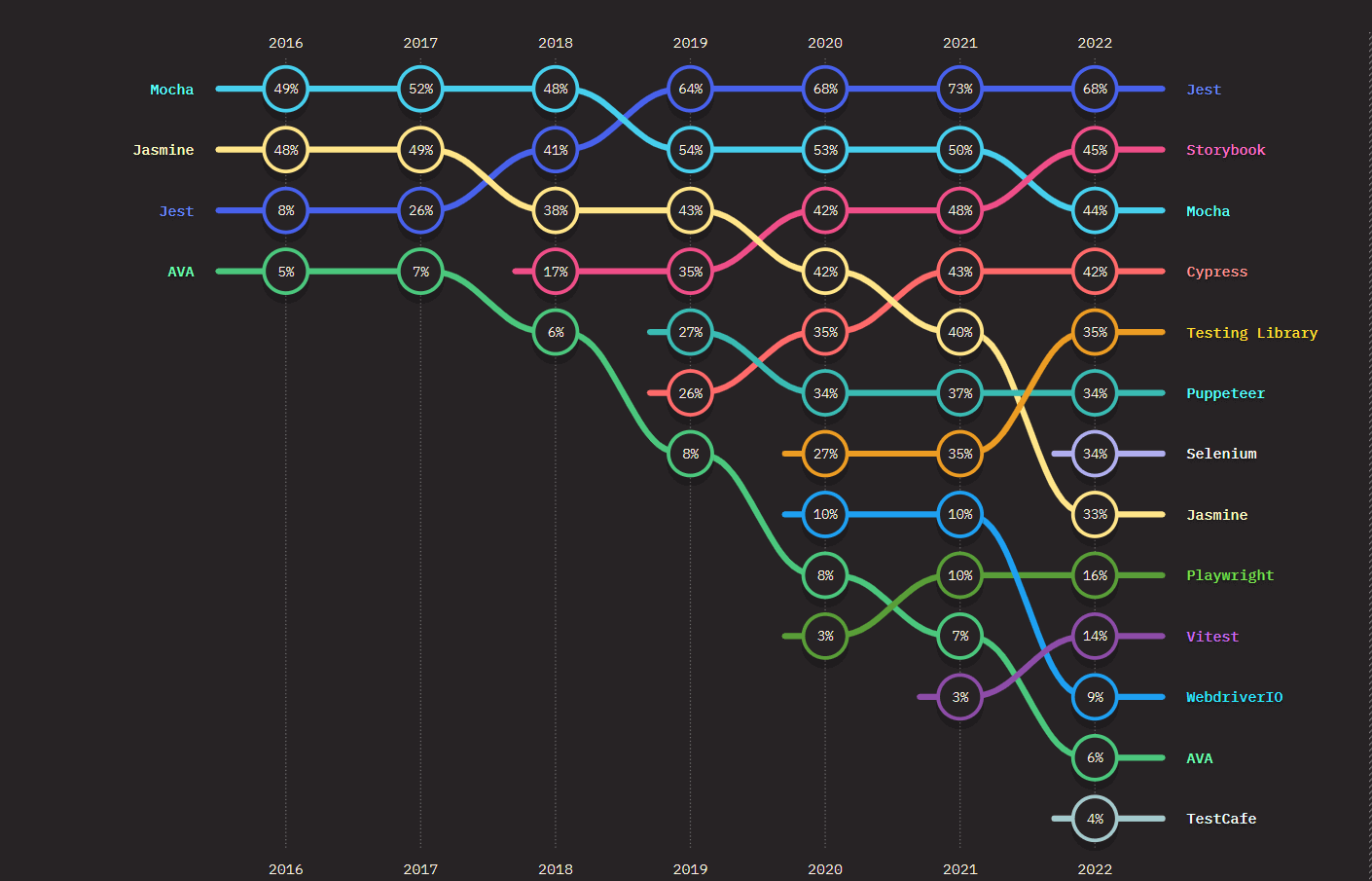Pulse of Information
Your source for the latest insights and updates.
Frameworks Gone Wild: The Javascript Edition
Unleash the chaos of JavaScript frameworks! Discover trends, insights, and surprises in our wild exploration of the JS ecosystem.
Exploring the Top 5 JavaScript Frameworks: A Complete Guide
In the ever-evolving landscape of web development, JavaScript frameworks play a crucial role in enhancing the functionality and efficiency of applications. This guide will explore the top 5 JavaScript frameworks that have transformed the way developers create dynamic websites and applications. These frameworks, each with their unique features and advantages, are essential tools for developers aiming to build scalable and robust applications.
- React: Developed by Facebook, React is renowned for its component-based architecture, allowing developers to build encapsulated components that manage their own state.
- Vue.js: Known for its simplicity and flexibility, Vue.js offers a progressive framework for building user interfaces, making it easy to integrate with other projects.
- Angular: Developed by Google, Angular is a fully-fledged MVC framework that is particularly suited for building large-scale applications with complex requirements.
- Ember.js: Focusing on convention over configuration, Ember.js provides a strong foundation for building ambitious web applications.
- Svelte: Unlike traditional frameworks, Svelte shifts the work to compile time, resulting in faster applications with less boilerplate code.

How to Choose the Right JavaScript Framework for Your Project
Choosing the right JavaScript framework for your project is crucial to ensure effective development and a seamless user experience. Start by evaluating your project requirements, such as scalability, performance, and community support. Consider the size and complexity of your application; for instance, lightweight frameworks like Vue.js are typically suitable for smaller projects, while robust solutions like Angular or React excel in larger, complex applications. Additionally, think about the development team’s expertise—many frameworks have steep learning curves, so it’s essential to choose one that the team can easily adapt to.
Next, evaluate the ecosystem surrounding the framework. Check for available libraries, tools, and plugins that can enhance productivity and simplify development. A vibrant community not only means more resources and third-party tools but also a wealth of tutorials, forums, and documentation. If possible, try out a demo or small prototype to get a feel for the framework's syntax, capabilities, and overall workflow. Making an informed decision early on can save time and effort later in the development process.
Debugging Made Easy: Common Issues in JavaScript Frameworks and How to Fix Them
Debugging in JavaScript frameworks can often feel overwhelming, especially when dealing with complex applications. However, understanding some common issues can significantly simplify the process. For instance, one frequent issue developers encounter is the notorious undefined property access. This happens when trying to access a property on an object that hasn’t been properly initialized. To troubleshoot this, always check your variables' initialization with simple console.log statements before using them in functions.
Another common problem is event handling issues, where events do not trigger as expected. This can arise from various reasons such as incorrect event binding or missing event listeners. A practical approach to resolving this is to ensure that your event handlers are correctly attached, ideally during the component lifecycle methods if you’re using frameworks like React. Remember to also check for any JavaScript errors in the console, as they can point you towards the exact locations in your code where issues may lie.